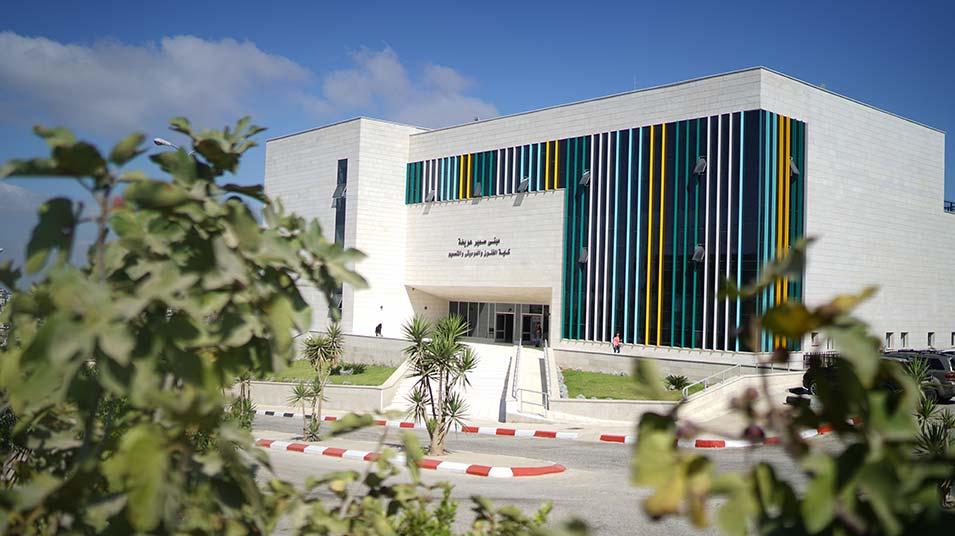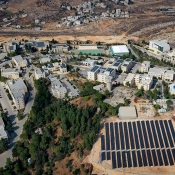Contemporary Visual Art Program hosts three-day workshop on entrepreneurship in art education
The Contemporary Visual Art Program at Birzeit University’s Faculty of Art, Music and Design has recently hosted a three-day workshop discussing entrepreneurship in artistic education in Palestine as part of the Multidisciplinary Skills for Artists’ Entrepreneurship (MUSAE) project.
The workshop, held on March 15, 17, and 29, focused on the analysis of data collected from partner institutions in Palestine, Tunis, and Uzbekistan regarding the role of artistic education at the undergraduate and graduate levels and the success rate of graduates in the fields of music, arts, and design.
Over 45 participants from different partner institutions in Italy, Belgium, Finland, Tunisia, Uzbekistan, and Palestine attended the meeting, where they discussed addressing the weaknesses and building on the strengths of the current art curricula and highlighted the training and teaching methods in use at their respective institutions. Additionally, the attendees explored the best methods of integrating entrepreneurship training within art, music, and design programs.
MUSAE, funded by the European Union, aims to develop entrepreneurs in a variety of creative fields, especially in music, visual arts, design, cinema, and performing arts, by engaging art students and instructors in the local, regional, and international creative sectors through internships, exchange programs, and joint projects, in cooperation with the partner institutions.
As part of the project’s first phase, the Contemporary Visual Art Program authored a national report indicating the structure of art-related higher education programs in Palestine as well as soliciting feedback from students, researchers, and instructors in the field. Additionally, the instructors and staff members of the program cooperated with their international peers on analyzing and presenting the data in the national reports for Tunisia and Uzbekistan.
The second part of the workshop revolved around establishing the intended learning outcomes for courses in the 2021-2022 academic year, which focus on developing students’ entrepreneurship skills.







